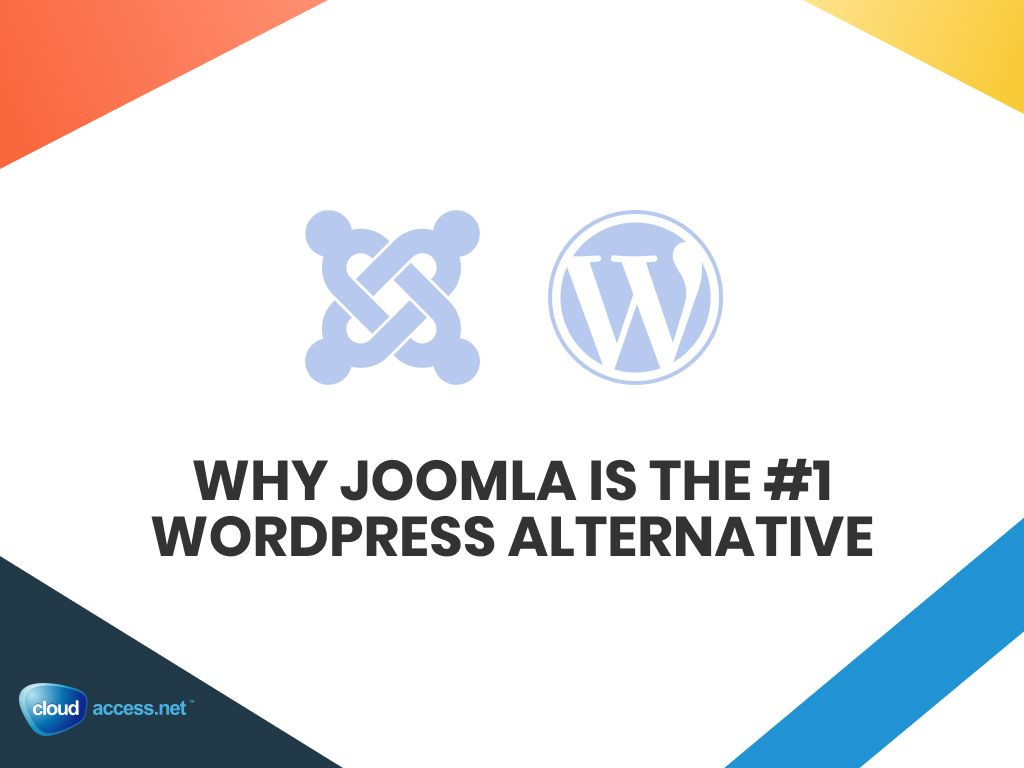Why Joomla Is the #1 WordPress Alternative
When it comes to building websites, WordPress has dominated the market for years. But it's not always the best fit, especially for users who want more flexibility, better native performance, or tighter security out of the box. That's where Joomla comes in.
In this post, we'll break down why Joomla is the #1 alternative to WordPress, what makes it unique, and why it might be the smarter choice depending on your needs.
What Is Joomla?
Joomla is a free and open-source CMS (Content Management System) used by millions of websites around the world. Just like WordPress, it allows you to manage content without needing to code.
But here's the thing: Joomla takes a more structured, powerful approach to content management, making it ideal for complex websites, multi-language platforms, and users who want more control without dozens of plugins.
Joomla vs WordPress: What's the Difference?
Let's get straight to it. Here's how Joomla stacks up:
🔧 1. Built-in Flexibility
Joomla comes with advanced user management, content organization, and multilingual support right out of the box. No need to install 5 different plugins just to get started.
With Joomla, you can:
- Assign users to multiple groups with custom permissions
- Create custom content types with ease
- Build multilingual sites without external extensions
WordPress often requires a patchwork of third-party plugins to do the same.
🛡 2. Stronger Native Security
Joomla has a reputation for taking security seriously. Its built-in access control levels, two-factor authentication, and regular security updates help developers sleep easier.
While WordPress is secure when maintained properly, it heavily depends on the security practices of third-party plugins, which are often the weak link.
⚡️ 3. Faster Performance Without Bloat
Joomla ships lean. You're not forced into installing a bunch of plugins to get the basics. That means better performance and less technical debt down the line.
It's also easy to fine-tune Joomla for speed, caching, and SEO without hiring a developer.
🧩 4. Advanced Content Structure
If your site has complex content, like directories, intranets, knowledge bases, or product catalogs, Joomla shines.
You can:
- Create nested categories
- Use custom fields
- Display dynamic modules based on context
WordPress is great for blogs. Joomla is great for content-heavy or structured websites.
Who Should Use Joomla?
Joomla is ideal if you:
- Are building a multi-language site
- Need more user access control and permissions
- Want more structure and control over how content is displayed
- Prefer fewer plugins and more native features
- Are a developer (or working with one) and want to avoid WordPress's plugin sprawl
In short: Joomla is built for people who care about long-term flexibility, scalability, and security.
SEO in Joomla: How Does It Stack Up?
Joomla has everything you need for proper on-page SEO:
- Custom URL aliases
- Meta titles and descriptions per page
- Canonical URLs
- Schema support
- Fast page speed with proper setup
With fewer plugins required and better performance controls, Joomla often provides a cleaner SEO foundation than WordPress.
Common Myths About Joomla
Let's bust a few myths:
❌ "Joomla is hard to use."
✅ Joomla has gotten much more user-friendly over the years. The admin interface is clean and logical, especially for users who don't want to rely on page builders.
❌ "Joomla doesn't have many templates or extensions."
✅ Joomla has a thriving ecosystem of professional-grade templates and extensions. Plus, most sites built with Joomla use custom layouts, no cookie-cutter themes here.
❌ "Nobody uses Joomla anymore."
✅ Joomla powers millions of websites, including government portals, large-scale organizations, and e-commerce platforms.
Final Thoughts: Is Joomla Right for You?
If you love WordPress, great. But if you've hit its limitations, or just want more control without piling on plugins, Joomla might be your new favorite CMS.
It's powerful, flexible, secure, and backed by a passionate global community.


